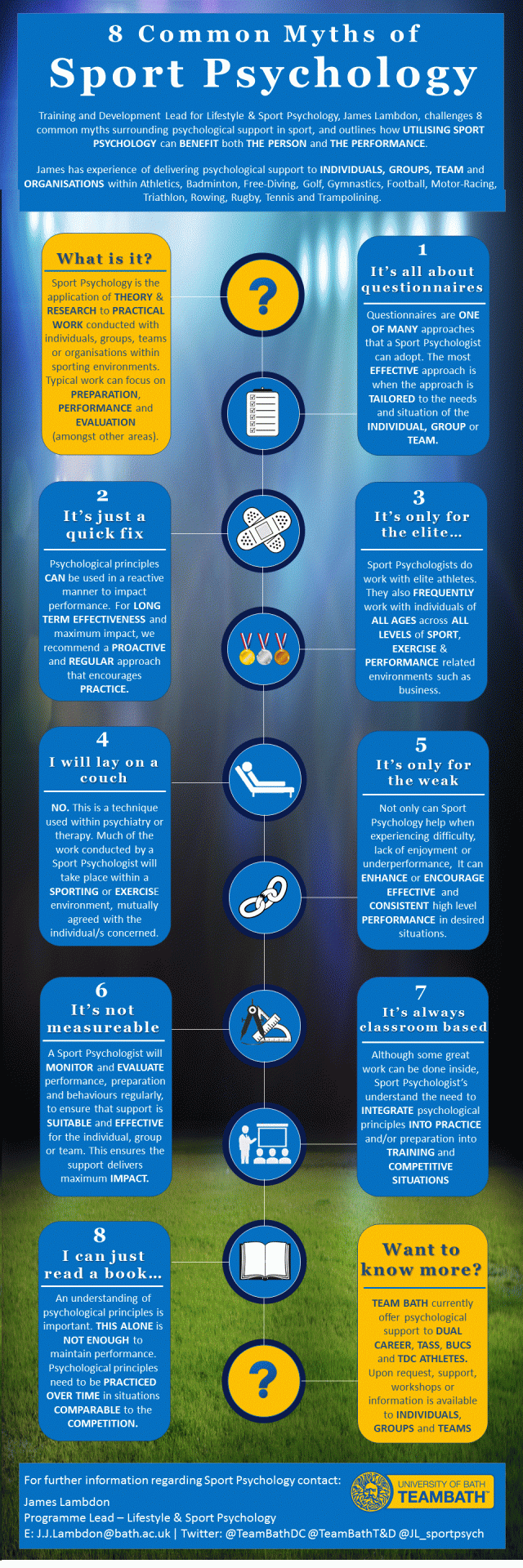Within the UK the pathway for aspiring sport and exercise psychologists has taken shape over recent years, with a clear infrastructure now in place to guide individual’s professional development.
At the time of writing, I am nearing the end of my professional training, having spent two years on the final part of the pathway as a member of a group supervision programme run by Dr. Brian Hemmings and Dr. Jonathan Katz. My intention in writing this piece is to outline the accreditation process in sport and exercise psychology and the associated experiences of negotiating this pathway. My hope is that this account will resonate with readers from different domains, currently completing, supervising or considering training pathways in psychology, to provide an opportunity to reflect upon their personal journey of development.
Following the completion of an accredited undergraduate and subsequent postgraduate degree, to gain chartered status, the British Psychological Society requires the submission of evidence documenting the successful completion of 460 days of supervised professional development across the domains of professional standards, knowledge, research, and applied practice. These components form the basis of the postgraduate qualification (2 years fulltime or 4 years part-time) known as the Qualification in Sport and Exercise Psychology (QSEP), which when attained enables candidates to apply for registration with the Health Care Professional Council (HCPC) as a sport and exercise psychologist.
Due to the independent nature of this qualification, it is inevitable that an individual’s personal and professional journey will be somewhat unique, with development in each of the key roles tending to peak and fall at certain times throughout the year. Prior to embarking upon the qualification, candidates are advised to be prepared to conduct work for free within their period of training. Therefore it is common for a trainee to generate income by combining QSEP training with running a private consultancy business, holding down a part time job, studying a PhD or teaching in higher education. This choice of complementary role can provide various opportunities for professional development and the gaining of consultancy experience.
Regardless of how an individual decides to balance earning income with the demands of the QSEP, a combination of patience, persistence and perspective is often required, as finding roles that effectively compliment training can prove to be challenging. Frequently throughout this journey to accreditation, such a balancing act presents obstacles for the trainee to overcome, for example, staying motivated in the pursuit of accreditation, negotiating payment with prospective clients or developing a portfolio of work within a viable travel radius (to name a few). Not only can successful negotiation of these obstacles develop professional practice, it can ultimately provide candidates with a sense of achievement, financial reward and opportunities for continued professional reflection.
Working towards completion of the QSEP provides candidates with a platform for flexibility, autonomy and variety; qualities that I consider closely associated with an effective work-life balance. Furthermore, this process provides individuals with a plethora of opportunities to build relationships with others, both within and outside of the discipline. The development of such relationships, whether through the supervision process, consulting with clients, networking and professional development activities or through collaboration with others is what makes the process of completing the QSEP an enjoyable and rewarding one.
James Lambdon, MSc, MBPsS
Programme Lead – Lifestyle & Sport Psychology
University of Bath
Email: J.J.Lambdon@bath.ac.uk

